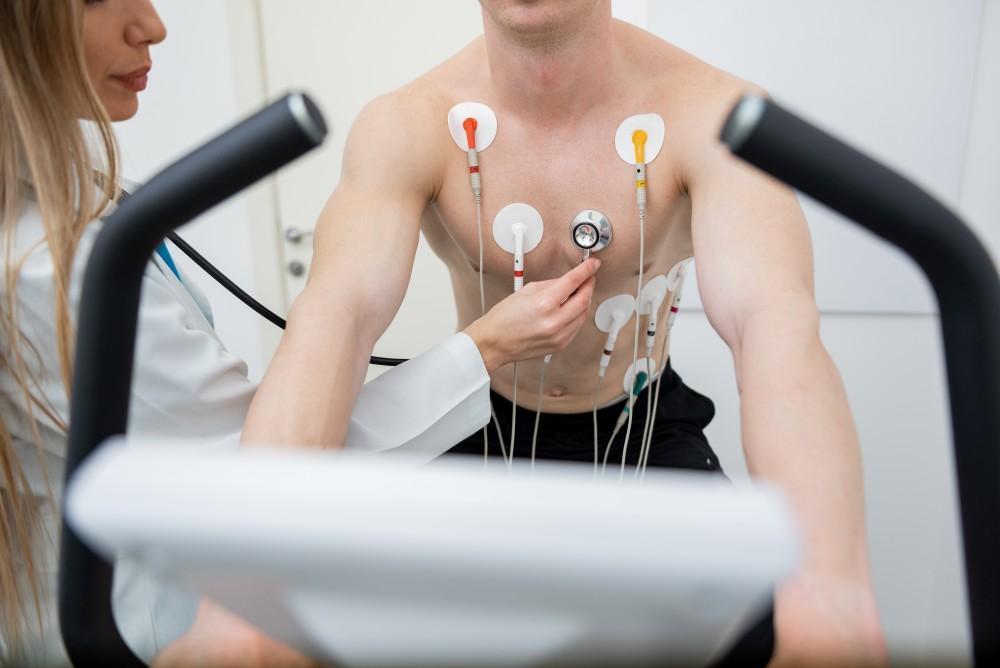
7 Telltale Signs of a Stroke

Strokes, sometimes called “brain attacks,” happen when blood flow to your brain is compromised. If you’re having a stroke, every minute counts: Swift treatment can potentially save your life. But how do you know if you or a loved one are having a stroke?
Below, Dr. Henock Saint-Jaques and his experienced team of cardiologists here at Harlem Cardiology in East Harlem, New York answer that question in more detail.
7 warning signs of a stroke
Learning to identify the signs of a stroke can potentially save your life 一 or the life of a loved one. The following signs can indicate that a person is having a stroke:
- Facial drooping (and potential numbness on the face)
- Difficulty speaking (slurred speech)
- Confusion
- Blurry vision (unrelated to an established vision problem)
- Severe headache (often described as “the worst headache of your life”)
- Dizziness and loss of coordination
- Nausea and vomiting
The American Stroke Association created the FAST protocol so that you can quickly determine if the symptoms you’re witnessing warrant a 9-1-1 call.
The FAST protocol stands for:
- F: facial drooping
- A: arm weakness (can’t raise arms or wave)
- S: speech troubles, such as slurred speech or trouble talking
- T: time to call 9-1-1.
Some of these symptoms, such as dizziness, can be related to other conditions. For example, vertigo can cause dizziness. However, strokes require immediate medical attention, so it’s better to err on the side of caution and seek medical attention if you suspect you or a loved one are having a stroke.
Note: Don’t attempt to drive yourself or a family member who you think is having a stroke to the hospital. The key to stroke treatment is fast treatment. Call 9-1-1 if you witness any of these signs.
What determines the stroke treatment best for me?
The exact treatment for a stroke depends on what type of stroke you had, but the end goal of any treatment is to restore proper blood flow to the brain. If you have an ischemic stroke, which is one of the most common types of strokes, treatment may involve an intravenous (IV) injection of tissue plasminogen activator (tPA) or alteplase. The tPA or alteplase breaks up the blood clot that blocks blood flow to your brain. Other potential emergency treatments for ischemic strokes that you might receive at the hospital include:
- Intra-arterial thrombolysis (IAT)
- Removal of the clot using a stent retriever
On the other hand, if you have a hemorrhagic stroke, you may receive medications and even surgery to lower the pressure in your brain.
Preventing future strokes
Unfortunately, if you’ve already had a stroke, your risk of having another stroke increases. About 25% of stroke survivors have another stroke within five years. Even if you receive emergency treatments or surgeries, you may still benefit from additional treatment 一 such as a carotid endarterectomy or angioplasty and stents一 to prevent future strokes from occurring.
One of the best things you can do to prevent a stroke is to treat any underlying conditions 一 heart disease, high blood pressure, high cholesterol, and diabetes 一 that increase your risk of having a stroke.
To learn more about treating strokes (or the conditions that increase your risk of having a stroke), call our Madison Avenue location at 646-381-2181 or request an appointment online.
You Might Also Enjoy...


Is It Possible to Lower My Blood Pressure Naturally or Do I Need Medicine?

What You Can Do Now to Prevent a Stroke Later in Life

3 Noninvasive Tests That Measure the Health of Your Heart

What Can I Do About My Varicose Veins?


